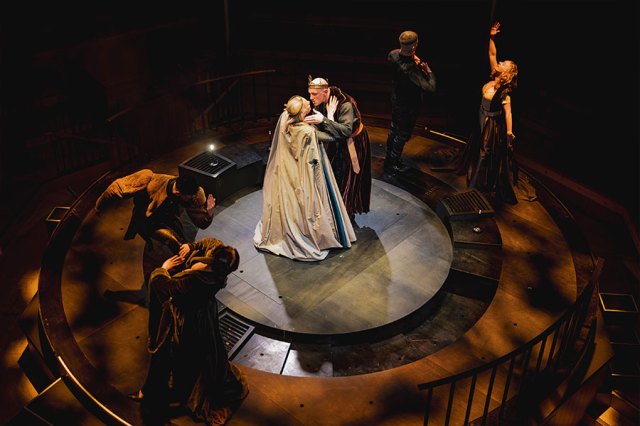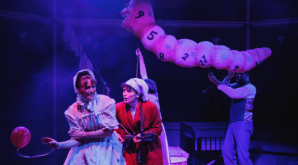Richard, My Richard review – Philippa Gregory’s first foray into theatre tackles the legacy of Richard III
The show runs at Shakespeare North Playhouse before transferring to Theatre Royal Bury St Edmunds

Well here’s a fascinating curiosity: the eminent historical novelist Philippa Gregory has turned her hand to playwriting. The richness of her research, the beauty of her language and the passion for her subject are all evident in abundance. Whether she’s actually written a play is a bit of a moot point.
For her debut, she takes the historical figure of King Richard III – and in particular Shakespeare’s representation of him as the ultimate villain – and aims to turn it on its head. Structurally, Richard, My Richard is a succession of vignettes, strung together with the interesting conceptual thread of the monarch himself in debate with a character called History, who carries a vast white tome in which is recorded all that is currently known about Tricky Dicky.
The pair spar and wrangle over whether Will’s depiction of him was remotely accurate, each discussion prompting a scene in which an alternative explanation is offered. Thus Richard’s smarmy wooing of Lady Anne is subverted into a scenario in which Anne herself does the wooing, eagerly in love with her childhood sweetheart and positively grateful for the death of her first husband.
Indeed, there are plausible theories for all Richard’s Shakespearean crimes – everything from Clarence’s drowning in a vat of Malmsey to the disappearance of the Princes in the Tower – and the wretched protagonist is painted not just as an innocent party but as positively virtuous, his pursuit of chivalry and loyalty stained irrevocably by an unfair and malicious rewriting of the record.
It’s all entertaining fodder, and the eight-strong cast do their bit to salvage his reputation. Kyle Rowe’s Richard is down-to-earth, rugged and chipper, while Tom Kanji’s History is part television lecturer, part absent-minded librarian as he’s forced to reconsider his big white book and its contents. The four women are highlighted in their roles as powerful figures behind the testosterone-fuelled façade of the Wars of the Roses, with Laura Smithers particularly strong as the duplicitous manipulator Margaret Beaufort.
Katie Posner directs on the Playhouse’s in-the-round stage (where the show runs until 30 March), with the production transferring later to Bury St Edmunds from 11 April, but Richard Kent’s design, with a circle of shallow steps interrupting the set, seems unnecessarily fussy and the action frequently feels cramped or forced in an attempt to create any kind of movement. The inherent nature of the storytelling compounds the difficulty – occasionally veering towards melodrama – as the vignettes play out functionally but without a proper dramatic engine or much emotional heft. What’s left is an academic argument over whether Richard was really the baddie that Shakespeare would have us believe (spoiler: he wasn’t).
It’ll be intriguing to see if Gregory makes any further forays into the theatre. On this showing, despite its technical flaws, she’s got plenty to say and an engaging language in which to say it.
















